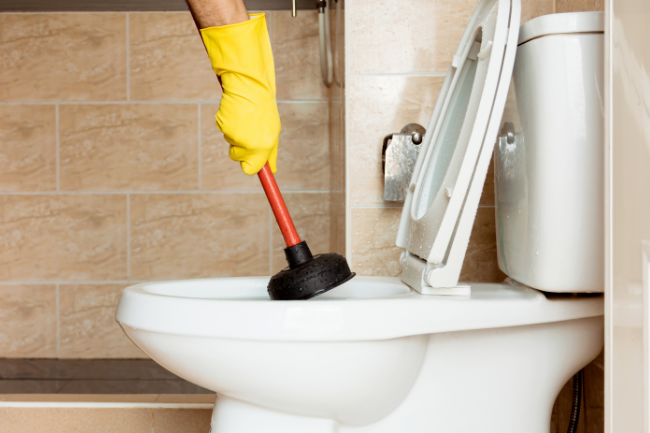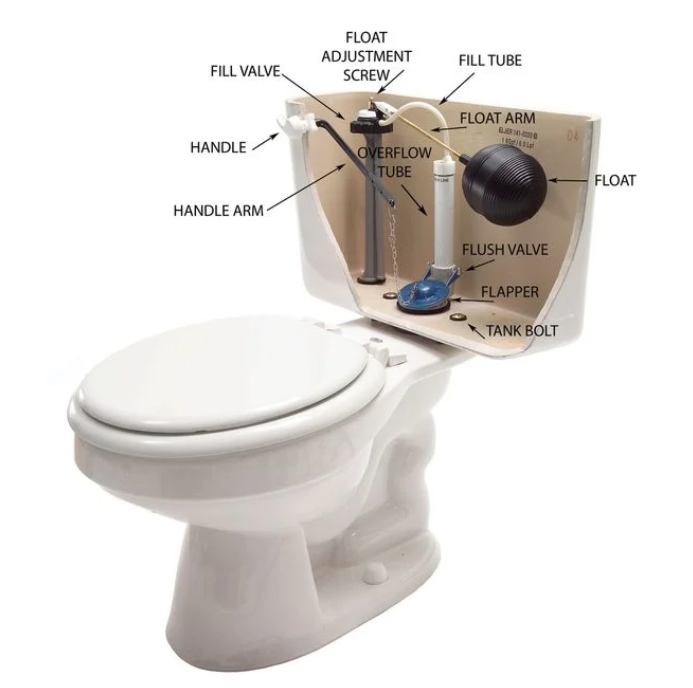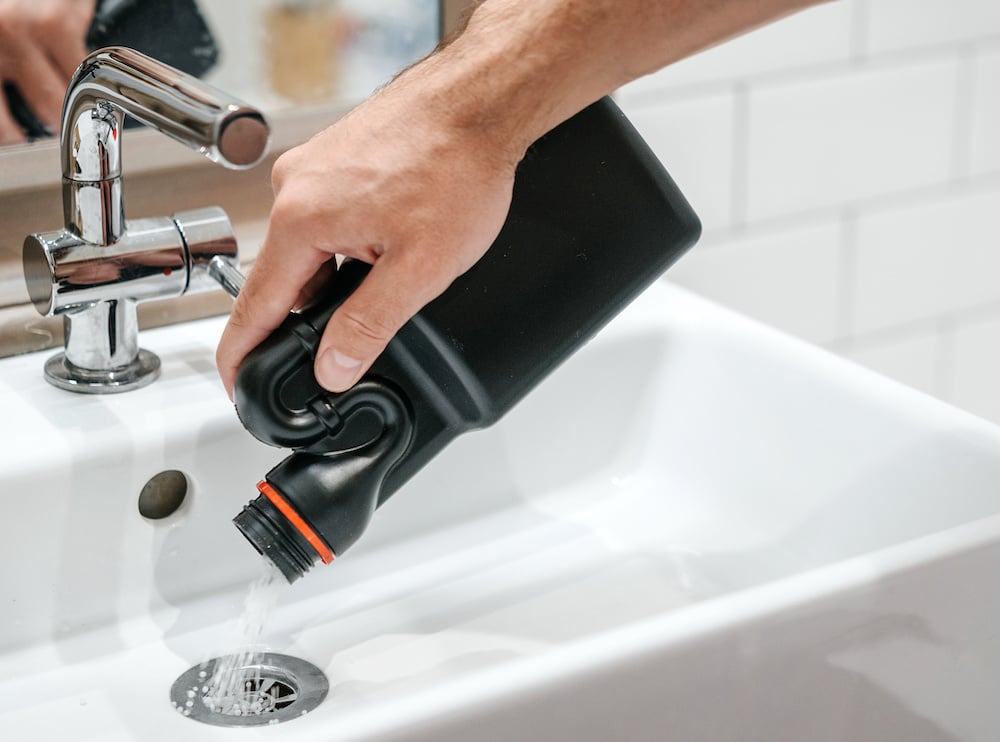Commercial Plumbing vs Residential: Key Differences You Need to Know
Posted by William Heinselman on
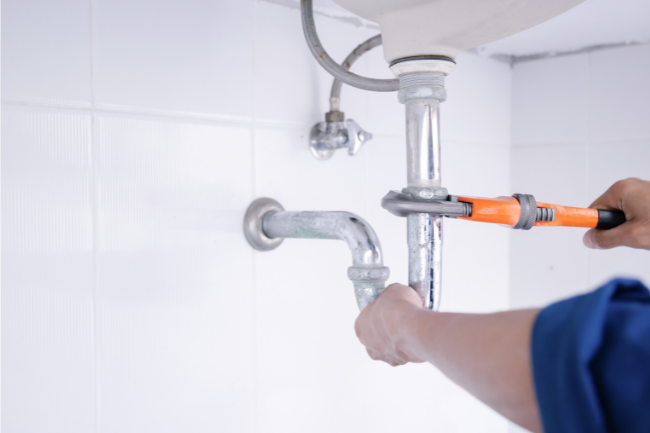
From scale and complexity to regulations and functionality, the differences between commercial and residential plumbing are very significant.
In this article, we’ll dive into the distinctive features that set commercial plumbing apart from its residential counterpart and shed some light on the key considerations that property owners, contractors, and plumbing professionals should understand to ensure the efficient and compliant operation of plumbing systems.
What is Commercial Plumbing?
Commercial plumbing encompasses the plumbing systems and services tailored to meet the specific needs of non-residential properties, including businesses, industrial facilities, schools, and healthcare institutions.
Unlike residential plumbing, which serves individual households, commercial plumbing is characterized by larger scale and complexity. It deals with higher water volumes, compliance with stringent building codes and regulations, specialized equipment like commercial-grade water heaters and grease traps, and a diverse range of applications spanning from office buildings to manufacturing plants.
Commercial plumbing plays a pivotal role in maintaining the functionality, safety, and sanitation of these commercial spaces, requiring a unique set of expertise and solutions to address their distinct plumbing demands.
What is Residential Plumbing?
Residential plumbing pertains to plumbing systems and services designed exclusively for homes and private residences. It addresses the water supply, distribution, and wastewater disposal requirements of individual households or multi-family housing units.
Residential plumbing systems are characterized by standard fixtures, including sinks, toilets, showers, and water heaters, tailored to the typical water usage patterns of households. These systems are generally smaller and less complex than commercial or industrial plumbing setups, making them easier to maintain and repair.
Compliance with local Sacramento plumbing codes and regulations is essential in residential plumbing, although it involves fewer regulatory complexities compared to commercial plumbing. Overall, residential plumbing is vital for ensuring the safe and efficient delivery of potable water and the effective disposal of wastewater within homes, contributing significantly to the comfort and functionality of daily life for residents.
7 Main Differences Between Commercial Plumbing vs. Residential Plumbing
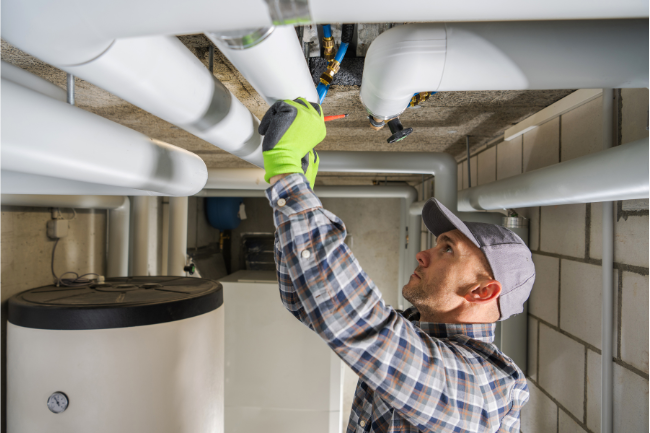
Commercial plumbing and residential plumbing differ in terms of scale, complexity, regulatory requirements, equipment, maintenance needs, and the diversity of applications they serve. We’ve outlined some of the main differences between commercial plumbing vs. residential plumbing below.
Daily Usage
Residential plumbing serves the daily needs of households with standard fixtures, while commercial plumbing handles significantly higher water volumes and demand in businesses, industrial facilities, and institutions, often featuring specialized, heavy-duty fixtures and appliances.
Likelihood of Damage
The likelihood of damage differs notably between commercial and residential plumbing systems. Commercial plumbing faces a higher risk due to larger water volumes, heavy usage, complex configurations, and stricter regulatory requirements. Commercial spaces are also prone to accidental damage or misuse.
In contrast, residential plumbing typically has a lower likelihood of damage, serving smaller households with simpler systems designed for standard needs. Homeowners' proactive maintenance efforts contribute to early issue detection and reduced damage potential. Nonetheless, both settings benefit from regular maintenance to help avoid damage and costly repairs.
Durability
Commercial plumbing, with its larger scale, heavy usage, and complex configurations, is more susceptible to wear and damage over time. The constant stress on components, coupled with potential cost-saving measures, increases the risk of issues.
Residential plumbing is generally more durable, serving smaller households with lower water demand and fixtures designed for standard use. Homeowners' proactive maintenance efforts and simplicity in design contribute to its overall durability, making it less prone to damage.
Complexity
Commercial plumbing systems are considerably more complex than their residential counterparts, featuring larger networks of pipes, specialized equipment, and diverse fixtures tailored to meet the specific demands of businesses and institutions. These systems need to accommodate higher water volumes, frequent usage, and various applications, resulting in a more intricate design.
Residential plumbing systems are simpler in layout, focusing on standard fixtures for individual households and lower water demand. The complexity of commercial plumbing requires specialized expertise for maintenance and repair, while residential systems are often more accessible and manageable for homeowners or professional plumbers.
Leak Detection
Detecting leaks in commercial plumbing tends to be more intricate than in residential plumbing due to the larger scale and complexity of their systems. Commercial properties often have extensive pipe networks, which require specialized equipment like acoustic sensors, thermal imaging, or video inspection cameras for pinpointing sources of leaks. Some commercial buildings also employ automated detection systems to promptly alert maintenance teams.
In contrast, residential plumbing systems are more straightforward, making leaks easier to detect visually through signs like damp spots or water stains. The complexity of commercial plumbing underscores the importance of accurate and timely leak detection to prevent water damage and business interruptions, while residential systems typically allow for quicker, more straightforward detection and repair processes.
Water Pressure
Water pressure in commercial plumbing differs significantly from residential plumbing due to distinct demands. Commercial plumbing systems require higher water pressure to supply larger buildings, multiple floors, and specialized fixtures and equipment, often using pressure-boosting equipment. This ensures a consistent water supply for industrial processes, firefighting systems, and commercial-grade appliances. However, strict safety and regulatory standards are essential to prevent excessive pressure that could harm plumbing components.
Residential plumbing operates with lower water pressure, suited to the lower water demand of households, and typically incorporates pressure-reducing valves to maintain safe levels and protect the system from damage. Proper water pressure regulation is crucial in both settings to ensure functional and damage-free plumbing systems.
Plumbing Work
Plumbing work and repair in commercial settings are largely different from residential plumbing due to complexity and scale. Commercial projects involve industrial-grade equipment, larger pipes, and specialized fixtures to meet diverse business needs, often spanning multiple floors and complex layouts. Maintenance and repairs in commercial plumbing can be more intricate and costly, with potential business disruption.
Here at Express Sewer & Drain, we make it our top priority to focus on professionalism, efficiency, and ensuring our customers are happy with our services. Whether you're dealing with plumbing issues at home or in your business, you can count on us to deliver dependable and timely solutions that cater to your unique needs, making sure your plumbing systems stay in great shape. Contact us today to learn more about our commercial and residential plumbing services!
Topics: Commercial Plumbing, Home Plumbing

